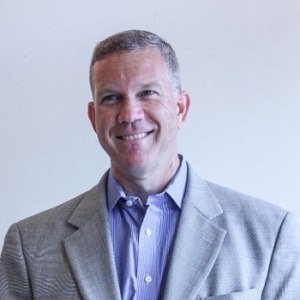By Scott Klososky, technology speaker, author, consultant and founder of Future Point of View
(This article was first published in Enterprise Matters, a Xerox blog for decision makers who work in large organizations, and who need to understand what it takes to manage their top talent, roll out technology decisions, and collaborate with coworkers and clients.)
Recently I participated in a panel at the Gartner Symposium with Xerox CISO Dr. Alissa Johnson, Candace Worley, Chief Technical Strategist for McAfee, and Sergio Caltagirone, director of threat intelligence and analytics at Dragos. One of the main topics of conversation was a subject ripped from the headlines: a historic fiasco with far reaching consequences. We are only beginning to understand the fallout from a breach, announced in September, which exposed the personally identifiable information of roughly half of the American population. The Equifax breach which exposed dates of birth, social security numbers and other sensitive information of around 145 million people is a game-changer. It’s also the apex of what is a growing trend: the mega-breach.
https://twitter.com/FuturePOV/status/910569546179682304
In the same month in which the Equifax breach was declared to the public, fast food chain Sonic announced it too had been the victim of a breach in which it coughed up reportedly millions of credit and debit card information. These are just the latest in a string of mega-breaches that seem to be escalating in frequency and intensity. So how do we and the organizations that are handling our private data better protect this data?
Here are three ways we might use technology to secure our private information more effectively:
Biometrics
Biometrics encompass a wide range of identification techniques including fingerprint and retinal scanning, facial recognition, gait measurement, even behavioral motion such as the way an individual moves a mouse across a screen or the recorded rhythm of their keyboard clicks. Although there have been some high profile false positives in fingerprint and facial biometrics, this is a field that will mature in the near future.
Artificial Intelligence/Machine Learning
One of the great challenges of cybersecurity is sifting through enormous amounts of data to understand and halt cyberattacks. Intelligent machines, such as Xerox’s ConnectKey® devices, will help human cybersecurity professionals more quickly and effectively locate and terminate attacks while also helping them to be proactive to stop attacks before they start.
Blockchain
The promise of blockchain is that it can more successfully protect sensitive records and advance the security of encryption keys. It holds that a decentralized system is safer than a centralized one vulnerable to attack. The blockchain is already working to lessen our reliance on passwords, improve the authenticity of internet certificates, and help increase the privacy of digitally-based communication.
These are three technologies that, in the coming years, will take a much greater role in protecting our digital data and personal information. With major breaches splashing the headlines constantly, this can’t come soon enough.
Learn more
Read “Partners in Data Protection,” which discusses different ways Xerox works with our customers to prevent data from getting into the wrong hands, inside and outside the work environment.
The future of cybersecurity is such a fascinating and critical subject. That’s why l am looking forward to the opportunities I will have to talk about this topic with Xerox.
 Throughout his career, Scott Klososky has been on the forefront of technology and industry. He is renowned globally for his ability to recognize and capitalize on future trends regarding the ways technology is shaping business and our world.
Throughout his career, Scott Klososky has been on the forefront of technology and industry. He is renowned globally for his ability to recognize and capitalize on future trends regarding the ways technology is shaping business and our world.
He is currently invested in guiding leaders through the digital transformation. Scott is the founder and principle of technology consulting firm Future Point of View. Scott regularly advises C-suite executives inside some of the nation’s most recognizable organizations.
Through Future Point of View, he works with organizations of different sizes and industries to assess and improve their digital maturity.
Scott has developed the innovative concept of HUMALOGY®, the blending of technology and humanity. Humalogy provides a framework on how leaders can best balance technology and human effort to make processes more efficient and effective.
As a speaker, Scott entertains while enlightening audiences around the world on a range of topics including cybersecurity, leadership, data intelligence, trendspotting, digital marketing, and injecting the right amount of technology into every process. He has developed a reputation for delivering presentations that leave attendees talking and thinking long after they have ended.
For much of his career, Scott has been devoted to helping organizations protect their digital assets and pilot what is becoming an increasingly critical area for the health and survival of all: cybersecurity. He is a co-owner of TriCorps Cybersecurity which provides a host of cybersecurity services including audits and assessments, vulnerability testing, forensics, remediation, and team member training.
He has spoken in front of the FBI’s Cyber Warfare Conference and the Federal Government for Financial Accountants. Scott is driven to ensure that all organizations can effectively protect themselves from cyberattack.
